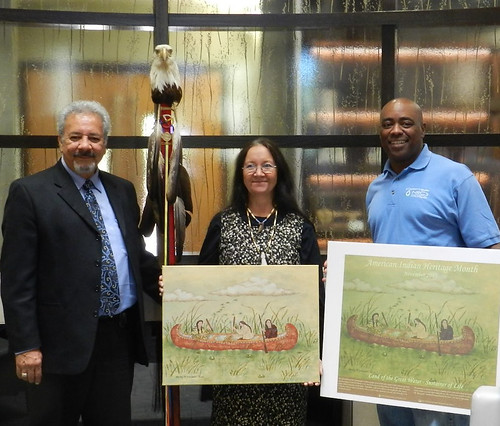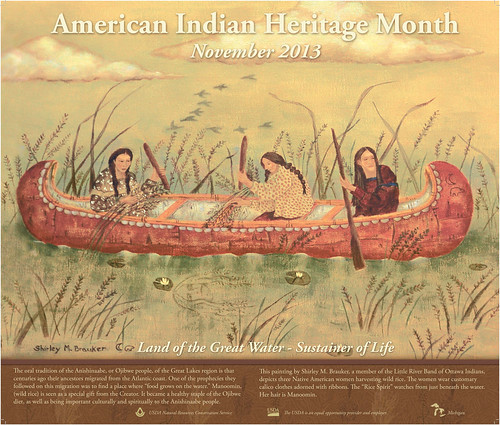
When the Anishinaabe people migrated from the Atlantic Ocean coast to Michigan centuries ago, they were in search of a place where “food grows on the water,” according to their tribe’s legend. Their quest ended when they found wild rice, thriving in shallow waters in the Great Lakes region.
The wild rice, or manoomin, served as a staple of the Anishinaabe diet is still culturally and spiritually important to them. And, today, USDA’s Natural Resources Conservation Service is helping keep this tradition alive.
NRCS has worked with two Anishinaabe tribes to increase the number of wild rice beds using financial assistance from Farm Bill conservation programs. The Lac Vieux Desert Band of Lake Superior Chippewa Indians in Michigan’s Upper Peninsula was the first tribe to use NRCS assistance for planting rice. Tribal members planted about 12 acres of wild rice at six locations in 2006.
Wild rice requires very specific conditions to grow. It needs good water quality, shallow but flowing water, and a mucky base.
Through the agency’s Environmental Quality Incentives Program, the tribes were able to implement the wetland wildlife habitat management practice, which helps restore the wild rice stands while providing habitat for wildlife.
The importance of wild rice to tribes in Michigan was recently showcased in a poster honoring Native American Heritage Month, held each November. Michigan artist Shirley M. Brauker painted the poster depicting three women in a canoe harvesting wild rice.
The poster was chosen as NRCS’ national poster to highlight the month, which is displayed at the agency’s offices across the country.
NRCS helps the tribes keep other traditions alive, including the cultivation of other food sources like native fish. The agency helped the tribes to construct aquaculture ponds for raising walleye, a native fish traditionally eaten and harvested by the tribes. The agency also helped tribes construct fish passages to allow for brook trout and other fish to move past man-made barriers.
Learn more about NRCS’ partnership with tribes across the country.

